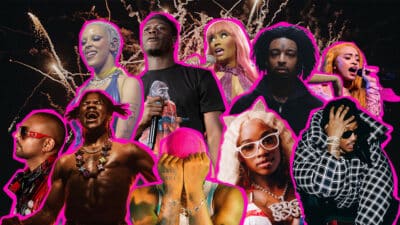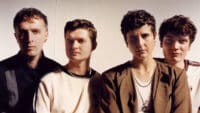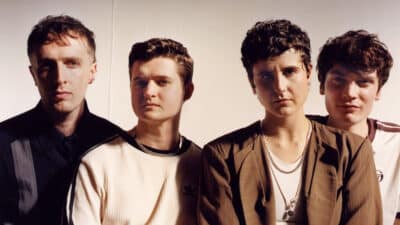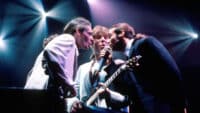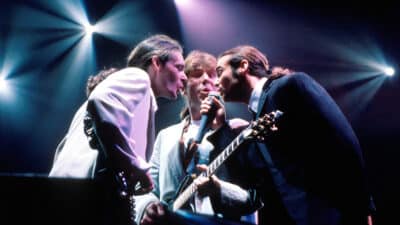Interview
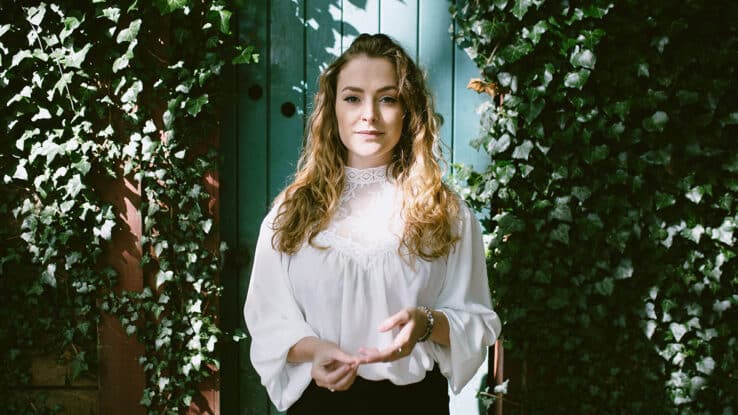
Interview
Katherine Priddy: “The moment you start singing songs, they’re not yours anymore”
The Brummie folk sensation on her distinctly personal new album The Pendulum Swing – and on sharing her emotions with fans
Music, truly, is the greatest form of emotional connection we have to others. A songwriter can spill their heart out in a record, speaking directly from their soul, and we listen, we understand, and then we connect. For Katherine Priddy, a resourceful and humble folk artist who resides in the Midlands, she believes it’s important to lose any sense of ego or ownership over her songs. As she claims; once she starts singing them – they’re no longer hers.
“One thing I’ve had to learn is to let go of ego,” she tells us. “When I’m singing to people in a room, they feel personal to me, but when you’re listening to music you’re not thinking about the artist, you listen to their songs and relay them to your own circumstances, and you relate to them in your own way.”
Following up her acclaimed debut album The Eternal Rocks Beneath, Priddy now returns with her latest record The Pendulum Swing, bringing with it an overriding sense of nostalgia, and home. Ahead of the release, we spoke to Priddy about the joys of touring, about overcoming nerves on stage, a brief deviation into the world of cinema and a look ahead at a hugely promising future.
So how would you describe yourself as an artist?
I sing and write songs. I think my music often comes under the umbrella of folk music but it’s not traditional. It’s got some storytelling elements of folk music and some of the intonations and melodies perhaps influenced by the Irish and English folk music I listened to growing up. But I also try and dip my toe into other waters as well, so it’s not pure folk, but it has an emphasis on lyrics that I associate with that.
Though wanting to make a name for yourself in the folk community, is it important for you to not just stick to any one genre? Assuming now people are more forgiving than they were to Dylan when he went electric….
It’s definitely important to me. There’s nothing wrong with sticking to folk and sticking to traditional music because there is a really dedicated crowd who love that music, and it’s a great community to be a part of. But I didn’t want to feel limited by that; I didn’t want to ever feel as though I had to stick to a particular sound in order to keep getting booked at the festivals I wanted to be booked at. I wanted to give myself the freedom to change my style and bring in different instrumentation when I wanted to. To appeal to a broader audience. I listen to folk music but I also listen to lots of other music, a lot of rock and more alternative stuff, and I love that just as much, so I didn’t want to feel like I was going ‘right, I’m a folk musician and therefore I just have to play it like this forever and ever’, because you’re just limiting yourself by doing that. Ultimately, I want people to see me as a songwriter first and foremost.

Looking back at your childhood, did you always want to be an artist and play music?
Funnily enough, no. I’ve always had imposter syndrome, I felt like a bit of a fraud, because I didn’t always want to be a musician. I always loved music, but I didn’t think I could sing for most of my life, so I didn’t sing in front of people at all. When I was at school, I always played music, I was in the orchestra and I used to be in school plays and things, but I never, ever thought I’d be a musician. I started teaching myself guitar and had to sing in front of people for my music GSCE and the teacher said that she thought I could sing, so that’s when, almost against my will, I started singing in front of people. Obviously now I love it and I don’t want to be doing anything else, but it certainly wasn’t something I thought I would be doing as a full-time career. But I feel really lucky to have fallen into it in the way that I have. It has come around quite organically in that respect.
Imposter syndrome is so common. Do you remember when you first thought, this is what I do, a moment that made you think – hang on, this is where I belong?
When I moved back from university and released my first EP called Wolf, I thought I’d just record something for fun and see if anyone likes it, but I didn’t really think anything of it. Then it was featured in Mojo’s end of year magazine because Richard Thompson, who I’d grown up listening to, picked it as his favourite thing of the year, which was mind-blowing. I didn’t even know how he had got his hands on it. But that was a moment when I thought, okay, I’ve put this little thing out there, and somebody I really respect really liked it, and they’ve talked about it in this magazine that I read. It made me realise that I should take this more seriously and crack on, that maybe there was something in it.
Let’s talk about your song-writing process. I know every artist has their own route into a record, but what’s yours?
I wish I could sit here and say that I had a fixed routine, and I had the perfect formula, but I’m still figuring it out. Sometimes lyrics come first. On my phone I have lists of sentences and verses or just phrases or words, and I keep that as a bank. Sometimes they come with a melody and sometimes they don’t. So when I sit down with my guitar, I’ve already got stuff to draw from. I can’t just sit down and go ‘I’m gonna write a song’. It has to feel quite natural. But I sit down every day and try and think stuff up, because it is a muscle and I do think it needs to be exercised. But the emphasis for me is on the lyrics, so they usually come first – then it’s finding a tune that fits them.
I bet you have a lot of notes on your phone.
So many notes. The songs tend to start as bullet points, the overall idea of what a song is, and then I try and break that down. It’s like essay planning, which really takes the magic out of it!
There is something innately personal about your lyrics, but they have real accessibility as well. Is that a tricky balance to get right?
One thing I’ve had to learn is to let go of ego. When I’m singing those songs to people in a room, they feel personal to me, but when you’re listening to music you’re not thinking about the artist, you listen to their songs and relay them to your own circumstances, and you relate to them in your own way. People aren’t going ‘oh Katherine felt like this about that person’, they think ‘I remember when I felt like this about that person’. The moment you start singing the songs, they’re not yours anymore, they become everyone’s – and I like that. But it does feel quite exposing and my songs on my next album are directly personal and it does make you feel quite vulnerable sometimes. But it’s cathartic, in its own way.
Does that vulnerability extend to performing them on stage? Because it must take courage to go out there, especially at the start. But has that got easier over time, do you feel more relaxed in that setting?
I wouldn’t say I’m any less nervous, but I am better at controlling the nerves than I used to be. I always had to sit down because my legs used to shake so much that I couldn’t stand up. But now I don’t shake, so while I can still be feeling nervous inside, I am better at controlling it. But there is a different vulnerability with performing live to a recording. I feel nervous about putting a record out because you’ve poured so much time into it, and every decision you’ve made with every sound is exactly how you want it, and it’s weird to think people just go, ‘nah, I hate it’. Because even if you know you’re not supposed to take it personally, it is personal, because music is so personal. Whereas with performing the vulnerability comes more by standing alone on a stage, it feels very exposed when singing live like that. But I am better at it now.
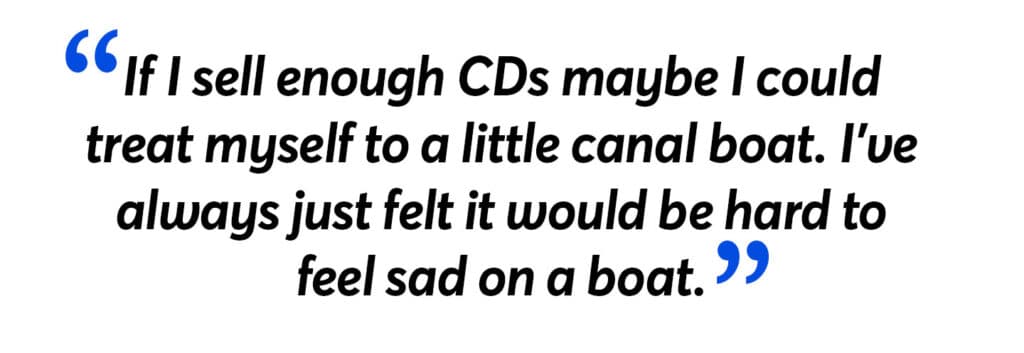
Do you enjoy the touring experience?
I really enjoy touring. It’s my favourite part of being a musician. I enjoy meeting people and I enjoy getting to play in lots of lovely venues. I enjoy the travelling aspect; I get to see so many different parts of the UK and abroad through music. I think it’s the most fun, because when you’re not doing that, you’re often isolating; sat in little studios or sat on your computer, or in your living room on your own with a guitar, so I think touring and festivals is the best part. That’s the social part. It’s where the music is best appreciated when you hear it live, so I really enjoy it.
So let’s talk about the new album The Pendulum Swing. I’m not suggesting it’s a concept album, but is there a through-line. Would you say it comes with its own identity as an overall piece?
I think overall there is a theme that runs through it. It wasn’t necessarily intentional, I didn’t write it as that, but when all the songs are written within a certain period, they naturally tend to have a similar theme because you’re in a certain chapter of your life. I quite like that now I can sum up a chapter in that way. There is the strong theme of home running through it because a lot of it was written when I had moved back in with my folks and I was trying to work out where I wanted to live and what I wanted to do and who I wanted to be, ultimately. There’s a song about my dad on there, a song for my brother, a song about the house I grew up in, a song about wanting to live on a canal boat, because I always wanted to live on a canal boat.
Reckon one day you may fulfil that dream?
I still think it could happen. If I sell enough CDs maybe I could treat myself to a little canal boat. I’ve always just felt it would be hard to feel sad on a boat. Because at the end of the day you’ve got your little space and I love the fact you can up and leave at any point, that has always appealed to me. Your own little floating world. If you get sick of anything you can loosen up the ropes, and off you go. Maybe one day.
You could do a canal boat tour?
I thought about that! That could be something that happens at some point. We’ll see.
There’s something cinematic about your sound, so it’s of little surprise that you’ve performed a song for the film No Way Home. How did that come about and how was that whole experience for you?
I really enjoyed it. I liked having a brief. it took me out of my own head and forced me to try something different. It’s easy to get so wrapped up in your own world and be focused on just that, so it was refreshing to be given a whole separate project and be given quite free reign, but with guidance, and an idea. It was a challenge which I enjoyed. It made me think about a bigger picture and took me into a whole different mindset, with a whole different set of emotions that belong to someone else. I loved being part of that project.
Due to the cinematic nature of your music, and its visual quality, do you picture imagery in your mind while writing and performing?
Yeah, I’m a visual person anyway. I’ve always done a lot of drawing. When I write songs, I’m picturing stuff, but I can also feel something bigger. I love big atmospheres and that cinematic sound. One thing I’ve always loved is tiny little textures, small little details, sounds, or room noises, that give you a sense of space. It’s the little details I’ve always enjoyed in other people’s music because they can sound so incidental but the act of leaving them in is such a deliberate choice. I do like it when songs have an expansive feel to them because it transports you away from the room for a second and into something bigger.
Who would you put down as your leading influences? Anyone you’d love to duet with one day?
Growing up I listened to a lot of Joni Mitchell and Nick Drake and lots of old folk artists. But these days, there’s alt-J who I love. Some of their songs are cinematic and they start somewhere and then end somewhere completely different. They’d be someone I’d love to work with. Others I’d love to duet with are Johnny Flynn and Scott Matthews.
You’re very down-to-earth and humble, but with success comes recognition. Is that something you’ve ever really thought about? Have you ever wrestled with that side of things?
I’ve never really thought about it to be honest. I’m also realistic, and I know you can be famous in the folk-sphere but not be particularly famous in the grand scheme of things. I still find it nuts that people buy tickets to come and see me. I am very, very glad they do, but it’s still bonkers to me that people are spending their hard-earned cash to come and see me. People come up to the merch table and are visibly nervous and I always find that crazy because I’m nervous speaking to them! I think the concept of people knowing who I am is quite surreal really. I have been recognised and it is weird. It’s lovely, and it’s really humbling, and it makes the world feel small. I don’t know how I’d cope if I was famous-famous, I think I’d find that tricky. Even though my songs are quite personal, I’m still a private person, and there’s still a lot I don’t necessarily talk about outside of songs, and I’d hate to ever feel like that was breached, but I can’t see that happening anytime soon. But if it did, I’d just have to see how I got on. Maybe I’d wear a fake moustache.
Just get into that canal boat and just set off.
Exactly, just disappear.
Katherine Priddy is playing UK dates in May. Find tickets here.
The Pendulum Swing is out on Cooking Vinyl from 16 February. Preorder here.





